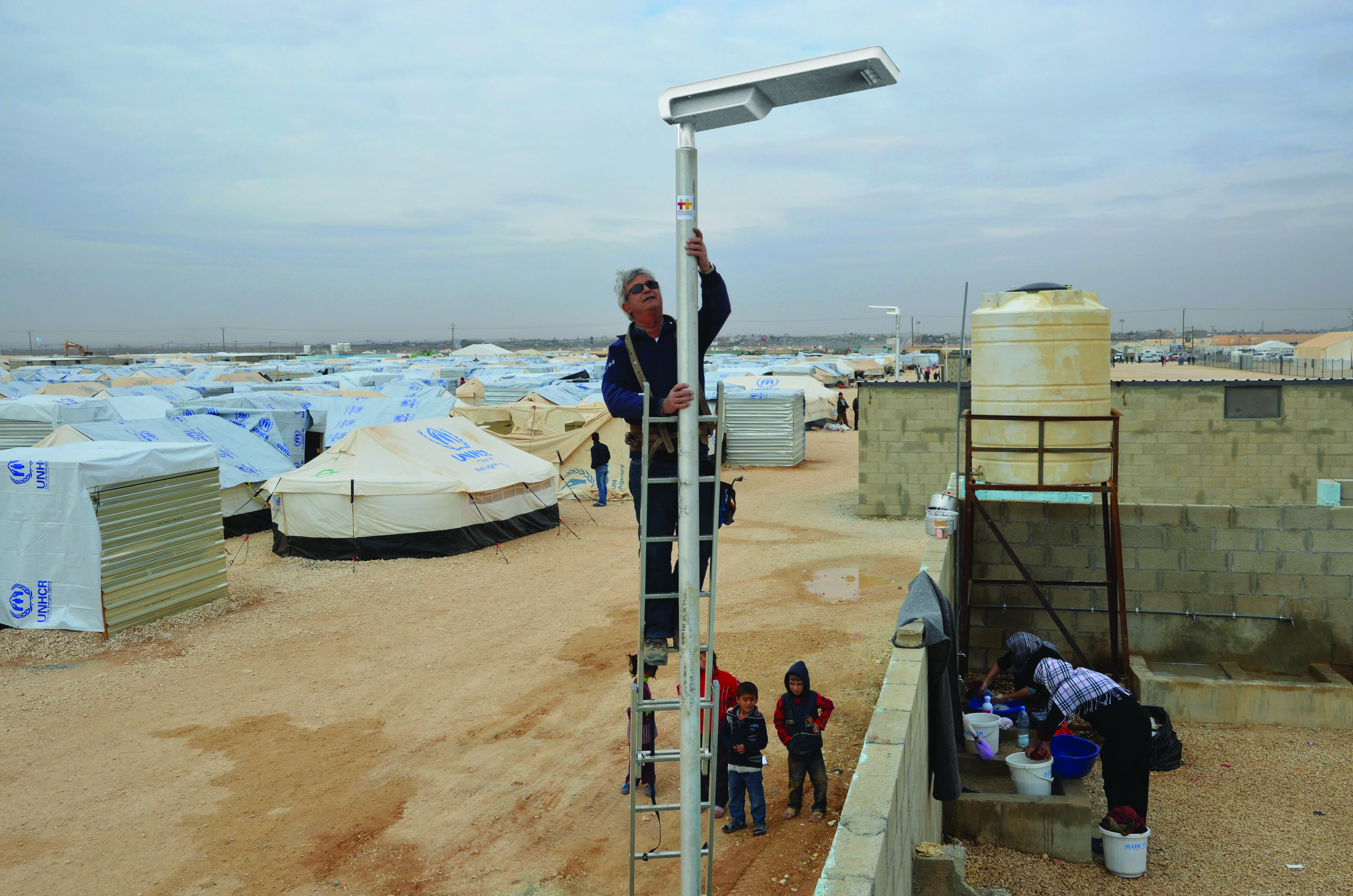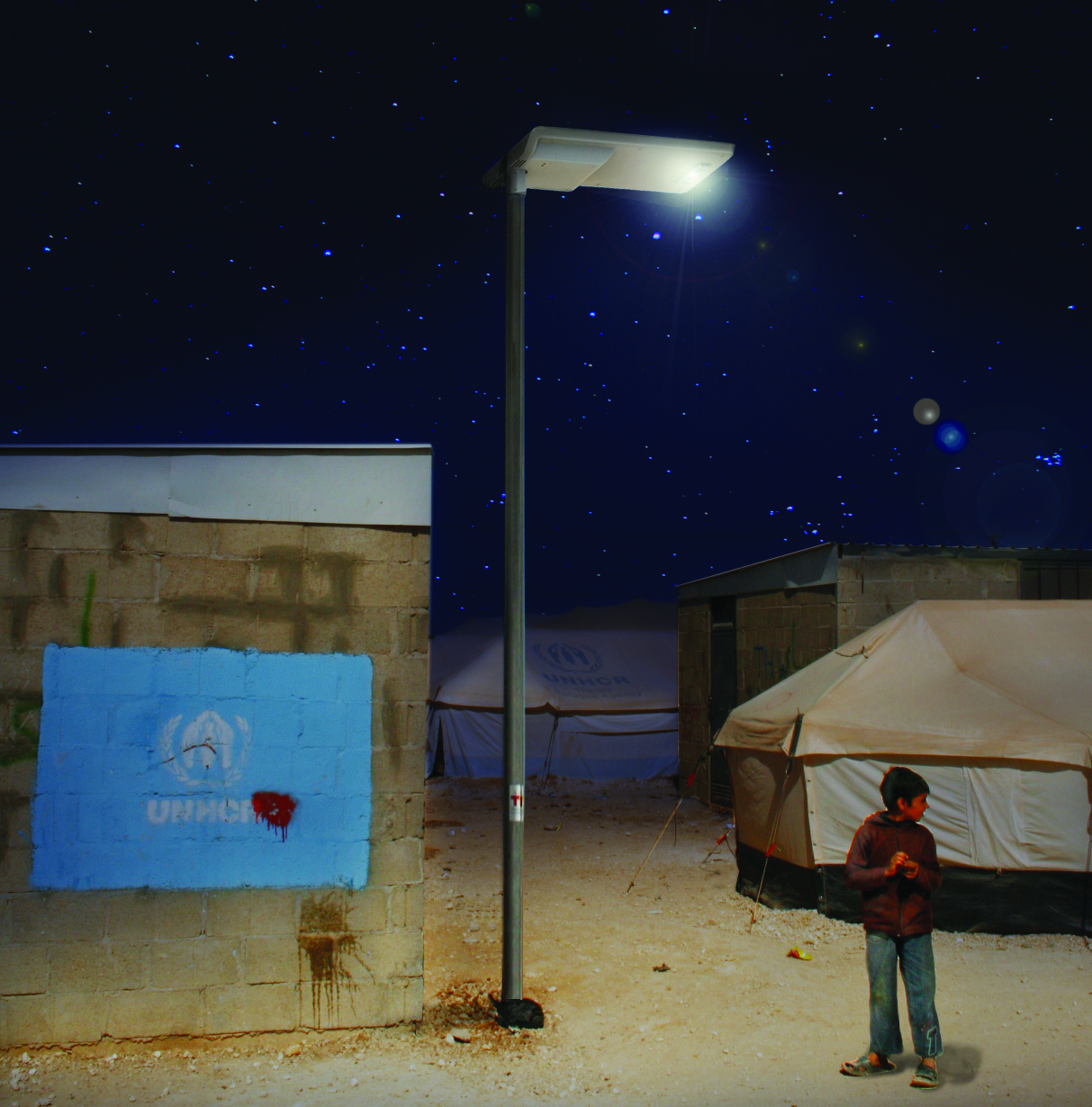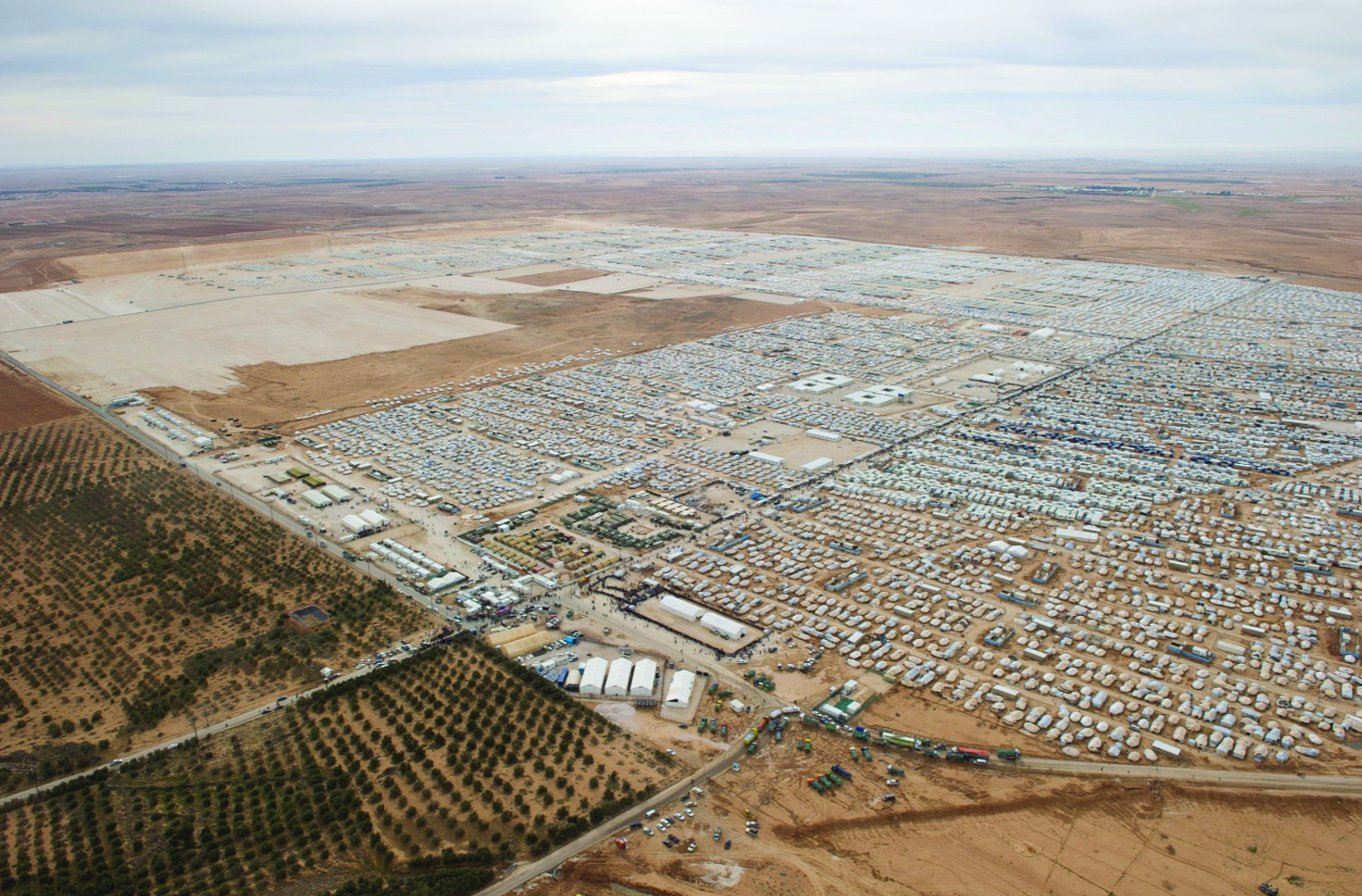DATABASE
Access to public lighting in refugee camps
completed
Country
Jordan
Budget
0 - 500.000 $
Year
2013
Issue
Solutions
Link
www.sunna-design.fr
Abstract
In this project, solar energy has been used to solve security issues through innovative public lighting solutions in a UNHCR syrian refugee camp in Jordan. French NGO "Electriciens Sans Frontières" installed Sunna Design heat resistant off grid solar streetlights to secure access to cooking and toilet facilities for women and children at night.
Project Description
In the refugee camp was an urgent issue of access to energy, and more precisely of security and comfort for women and children in their use of the cooking and toilet facilities at night. Access to light has been raised as a priority by the United Nations, and it is well known that public lighting enhances safety, so the UNHCR decided the solution could be to install streetlights above these facilities and alongside the pathways. ESF (Electriciens Sans Frontières) is a non-profit organization solving electrification issues in emergency situations, and they offered to help set up the installation. To do so, the NGO needed a compact plug and play solar lighting solution, affordable, totally self-sufficient, with no maintenance. In particular, because of the extreme weather conditions in Jordan, a heat resistant product able to guarantee lighting throughout the night and throughout the years, no matter the operating conditions, was required. Sunna Design, a French company manufacturing in France, is the only company to have developed and patented a breakthrough technology for solar streetlights that offers unequalled resistance to extreme heat. In operating conditions, they are capable of guaranteeing 10 years of lighting service throughout the night, thanks to an architecture combining a patented Nickel based battery and a Smart Energy Management System. Tackling the problem of safety in refugee camps by allowing long term access to energy was the priority of the project.
BENEFICIARIES
Zaatari camp hosts Syrians fleeing the civil war. At the time of the project, 45000 people lived in the camp (now approx. 150000).The camp made of large tents and built toilet and cooking facilities, grows exponentially with at some times a daily flow of 1000 migrants, including women and children.
Results
100 Sunna ISSL+ streetlights have been installed throughout the Zaatari camp, more specifically around the built toilet and cooking facilities. The streetlights have been working for almost 2 years now, and the impact has been monitored and published by UNHCR using camp administration stats: "It has an impact on the camp daily life : • Reduction of the risk of sexual and gender-based violence • Reduction of the incidence of crime and vandalism • Breach of the cycle of lethargy from living for years in a refugee camp • Improvement of the lives of refugees, enabling more community gatherings and social activities" From Light Years Ahead, publication by UNHCR It tackles several Millennium Development Goals, like Goal 3 : promoting gender equality in the basic safe access to cooking and toilets, Goal 8 : developing a global partnership for development bringing together internationally an NGO, a UN institution and a private company, also aiming towards a sustainable development goal.
Business Model
Sized precisely for the operating needs, Sunna Design ISSL+ streetlights have been able to keep the costs down and remain affordable. The fact that there is no technical maintenance necessary for 10 years, no battery or part change to finance and schedule, allows the NGOs to deliver durable solutions that have no cost impact on the camps, the camp management being then able to move the lights if necessary. The upfront international funding guarantees a long term access to energy and security.
Lessons Learnt
This technology seems to be particularly adapted to help bring reliable, durable and affordable solutions of access to energy to vulnerable people. "Despite all the work of UNHCR, local authorities and refugee communities to ensure safety within the camps, refugees are still vulnerable to insecurity and personal attacks. A simple and effective means of augmenting their safety is installing streetlights." Light Years Ahead, publication by UNHCR « Darkness used to terrify me. With the streetlights, I go out again at night." Hariri Intissam, 46 year old Syrian woman refugee The impact has been monitored and UNHCR is now planning the installation of more sreetlights to cope with the camp growth.
Key Feature
This project is significant and relevant as a Case Study because it shows how strong international partnerships and breakthrough technology combined can make the difference. Sunna Design has already federated key scientific players to provide excellence in renewable energy topics, especially in the field of access to energy for emerging countries. A long-term R&D collaboration has been launched with the French National Institute of Solar Energy (CEA) since the creation of Sunna and shared patents have been published protecting Sunna's unique Nickel based battery and the electronic intelligence of the battery management system. To make this particular refugee camp project replicable, Sunna Design has built a strong partnership with NGOs and particularly ESF, and designed a tailored "Camp" package with ready to install streetlights fit into a ready to ship standard container. After a quick installation, this allows durable access to public lighting for around 10000 people.
Other significant information
Sunna Design embraces the philosophy of frugal innovation: by focusing exclusively on the essentiel features of a solar streetlight, the company have been able to develop a product that uses the latest technology to guarantee an efficient yet affordable installation for NGOs and developping countries. Each technology brick contributes to the energy efficiency. The electronic intelligence allows dynamic lighting: it is permanently fully aware of the level of charge of the battery and able to adjust the lighting power to make sure even a dimmed lighting remains until sunset. Therefore the battery has been precisely sized for the need and does not need to be oversized to compensate early disfonction linked to the heat. The solar panel has then been sized accordingly. Other solar streetlights on the market have no BMS and use lead-acid batteries with a 1 year lifespan in hot weather requiring a costly yearly battery change despite an oversized battery, requiring an oversized solar panel.
Main Donor
UNHCR
(International agencies)
Implementing Actor
Electriciens Sans Frontières (NGOs)



